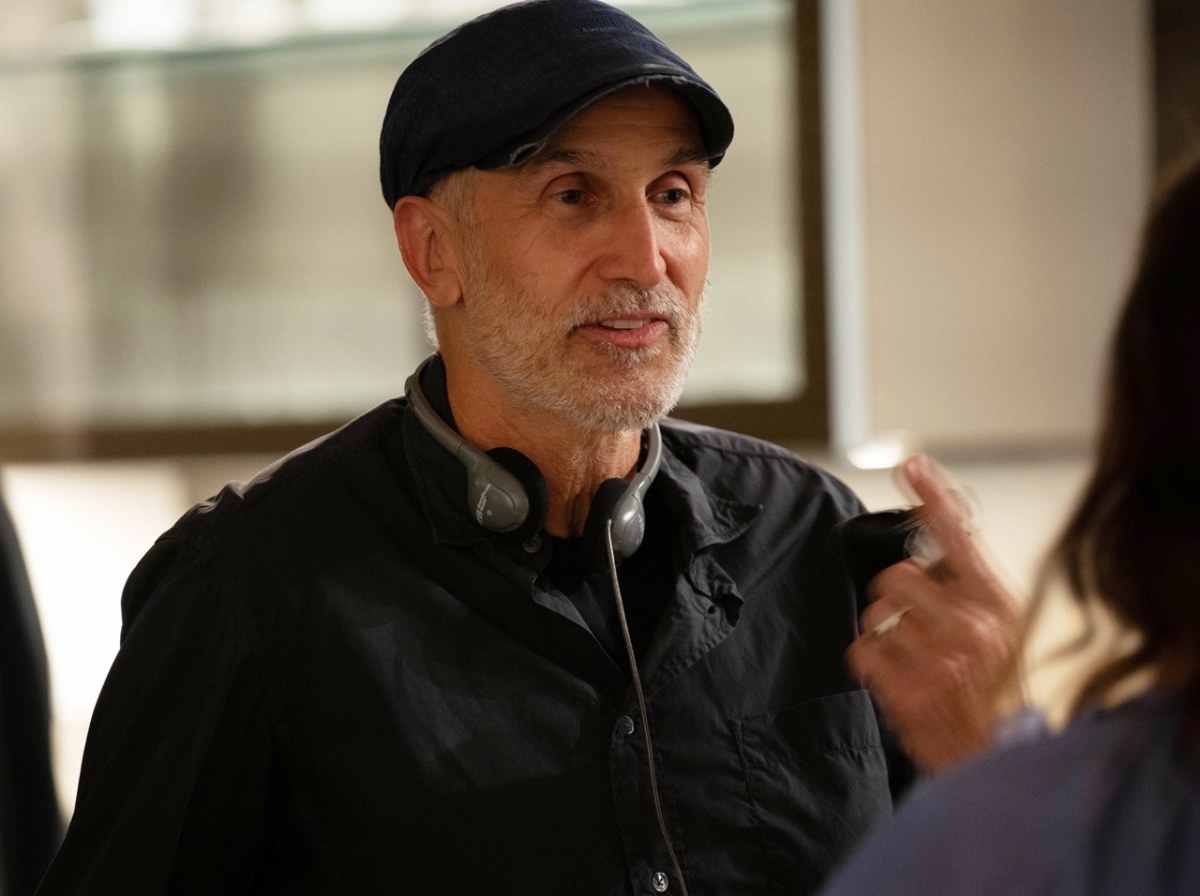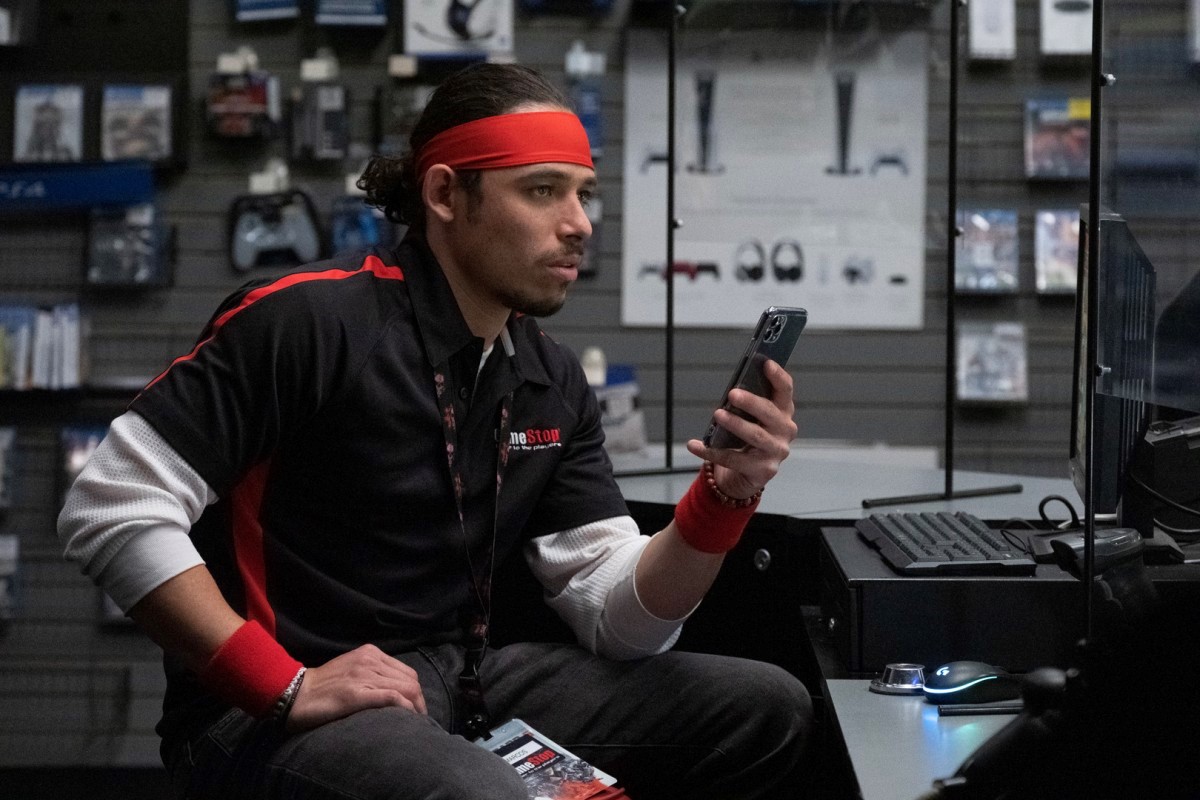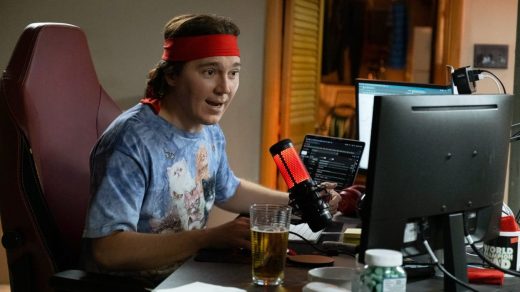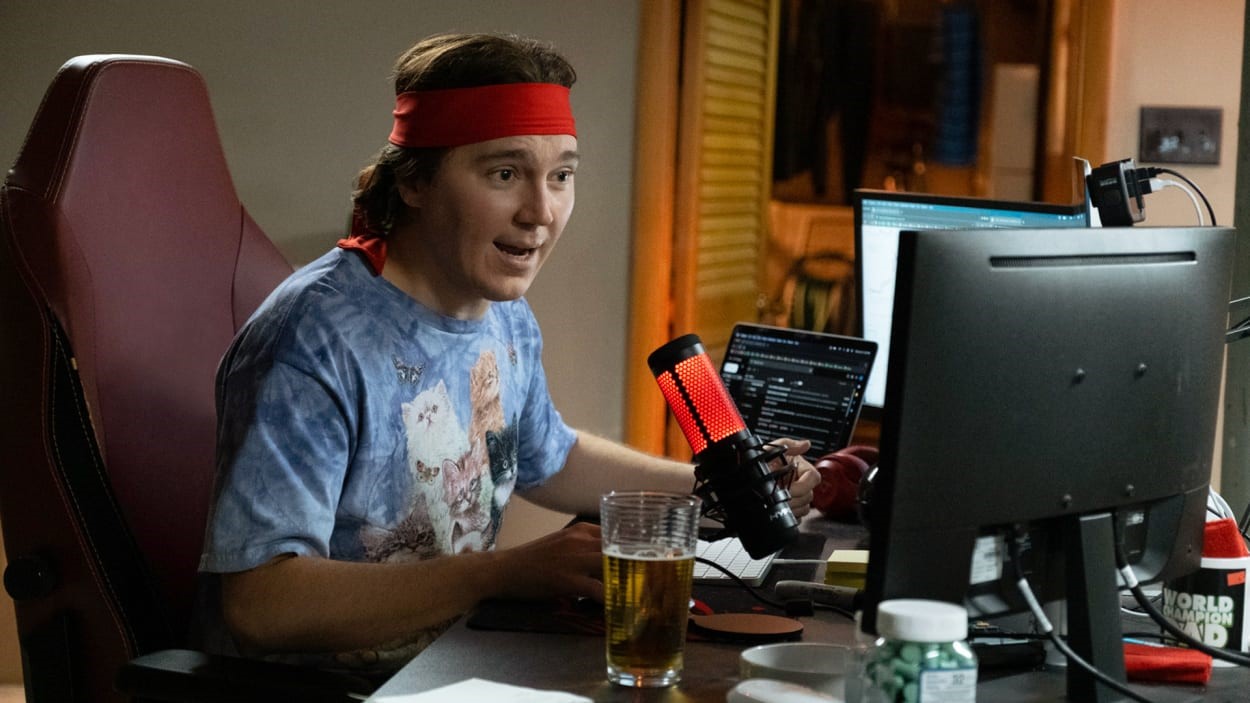How ‘Dumb Money’ brought meme stock trading to life
It was cinematic from the start. A group of amateur stock dabblers, stuck at home during the pandemic in early 2021 and glued to their screens, began driving up the stock price of ailing video game retailer GameStop by making online investments. The amateurs congregated on the Reddit page, WallStreetBets, and were galvanized by a red head-band-wearing Bostonian named Keith Gill who went by the online moniker “Roaring Kitty” and doled out measured stock advice from a back room in his modest Massachusetts home. As GameStop’s stock surged, these rookie investors became instantly rich—in some cases, becoming millionaires in just a matter days. Meanwhile, Wall Street investors who’d bet against the company were forced to back out and buy back GameStop stocks—in what’s known as a “short squeeze”—losing billions.

Craig Gillespie [Photo: Sony Pictures]
This rapid chain of events, which almost caused stock trading app Robinhood to go under and culminated in a Congressional hearing, generated 24/7 news headlines and online memes featuring a lot of cats with bared claws. But director Craig Gillespie (Cruella; I, Tonya; Lars and the Real Girl) saw more in the story. He latched onto the emotional journey of Gill and other Reddit users who saw their dreams—and bank accounts—either realized beyond their wildest imaginations or instantly destroyed when they decided to “hold” their suddenly plummeting stocks, a twist engendered by Robinhood deciding to limit trading of shorted stocks in the wake of GameStop’s stock spike. His film, which draws from Ben Mezrich’s book about the saga, The Anti-Social Network, as well as hundreds of hours’ worth of Gill’s online video posts that chronicled the events in real time, debuted at the Toronto Film Festival on September 8 with Paul Dano in the role of the unlikely Wall Street agitator; Seth Rogen as Melvin Capital founder Gabe Plotkin; Pete Davidson as Gill’s brother Kevin; and America Ferrera as a nurse who invested in GameStop.
Gillespie recently spoke with Fast Company about the making of Dumb Money, which he ultimately sees as a parable about the growing gap in this country between one-percenters and everyone else, and the growing desire among the masses to, as he puts it, “stick it to the man.”
Fast Company: What first drew you to this story? So much of the action took place online that, frankly, it’s not the most obvious material for a Hollywood adaptation.
Craig Gillespie: I have two sons. The 24-year-old was living with us during COVID, while [the GameStop drama] was going on. He [had been] involved in WallStreetBets early on, dabbling in stocks and following things and investing in different things. So he became a part of this movement. He was tracking it, he invested, and then he sold. He timed it perfectly. He went through the stock jump when it escalated. And then there was the outrage with RobinHood, and WallStreetBets being [temporarily locked and hidden on Reddit and banned on Discord for “hateful and discriminatory content”], and then Keith Gill being subpoenaed.
So I was living through all that with him, and it was an incredibly emotional, intense experience, both exhilarating at times and incredibly frustrating. And that really connected with me.

Nick Offerman and Seth Rogan [Image: Sony Pictures]
FC: None of the individuals whose stories you tell in the movie participated in the making of Dumb Money. How were you able to create such detailed portraits of them?
CG: A lot of it is drawn from Ben Mezrich’s book. And we [created] composite characters to try to represent different areas of the story. Like, the people that lost; the people that won; the people that held. I tried to represent it in a faithful way because obviously not everybody did well in this. A lot of people didn’t.
But the poster boy was Keith Gill. He was the lighting rod that took WallStreetBets from 400,000 to 8 million followers in that three-month period. We reached out to Keith several times but didn’t hear from him. And we had to respect his privacy. He posted his final post in April of 2021. At some point you just have to respect that that’s what he wants to do. There’s so much video footage of him online, seven-hour posts weekly. [Screenwriters] Rebecca Angelo and Lauren Schuker Blum did an amazing job of staying faithful to what we could find factually. A lot of that dialogue is verbatim—what Keith was saying on his videos. And then we have to extrapolate from that. What’s going on in the home life? The pressure of losing $30 million in a day; being subpoenaed by Congress; and figuring out, what’s going on there? To see the youthful enthusiasm and joy of Keith talking about stocks in his earlier videos, the earnestness and the sincerity that he has, then to see him having to testify before Congress—that was fascinating, that trajectory, getting to that point where the stakes are so high. It’s so much larger than he ever anticipated.

America Ferrera [Image: Sony Pictures]
FC: A big challenge, from a directing point of view, must have been conveying a lot of complex, very nuanced explanations about how stocks and trading work. A lot of viewers will have no idea what a short squeeze is.
CG: It’s a lot to process for the audience. We saw in early screenings that we kind of bombarded them with information, and it wasn’t necessarily landing. And then we just started stripping it out and letting the actors tell you what’s at stake through their performances. You want to be connected emotionally. You want to leave people with this sense of outrage at the wealth disparity in the country.
The earlier version felt like homework. A friend of mine said, at one of the very early screenings, ‘It kind of made me feel dumb.’ Because we explained things and he still couldn’t follow it—complicated things are at play, particularly options, and then the payment for order flows. People in that industry understand it. But for laymen, it’s like, Hang on, what?

Anthony Ramos [Image: Sony Pictures]
FC: Because of the COVID-related shutdowns, the characters are clearly isolated and craving community. Did you think of the pandemic almost as a character in the film?
CG: I think COVID is why this [story] happened. The alienation and the social movements that were going on, the disparity of wealth, you could feel the frustration. Small businesses closing down, in particular. There was just a lot of intense, emotional baggage for everybody. And the place that they were able to vent was online. GameStop happened to be a stock that everybody could rally around, but I think it was much more about the frustration that was going on in our country. It was about being heard. And it’s continuing. Obviously, we’re in the middle of a strike right now in Hollywood, and it’s about that disparity, that frustration. You see it in strikes going on all around the country in different areas.
There’s a line I love at the end of the film. It’s an actual line that we found from a news commentator [about how] it used to be that the Reddit users were a fringe movement in the stock world. And now they can actually move markets. And that’s a reckoning. It’s really the first time that that happened. And the AMC meme stock mania happened right after. So now hedge funds have whole divisions monitoring social chatter. It is a real thing now.

Pete Davidson and Paul Dano [Image: Sony Pictures]
FC: Without giving too much away, the final scene is a heartwarming yet zany moment when Gill and his ne’er-do-well brother Kevin, played by Pete Davidson, race around a running track in the rain wearing their birthday suits. Did that actually happen?
The writers had found out that Kevin did run the mile in college. He did run naked in a storm. We would extrapolate from things that we could find.
(38)



